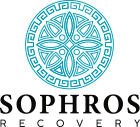
At Sophros Recovery Jacksonville, our addiction therapy programs stand out due to our holistic approach, integrating family therapy alongside individualized treatment modalities. This comprehensive approach helps inspire a supportive environment essential for sustainable recovery and familial healing.
To learn more, contact our team of experts today at 904.760.4295.
Family Therapy in Jacksonville, FL
Family therapy holds immense value for individuals in Jacksonville, FL, grappling with addiction, as it recognizes the significant impact substance abuse can have on familial relationships and dynamics. Family therapy, by definition, is a therapeutic approach that focuses on treating mental health issues within the context of family relationships and dynamics. It aims to address interpersonal conflicts, improve communication, and foster healthier interactions among family members to promote overall well-being.
Through family therapy sessions, individuals and their loved ones can address underlying issues, communication breakdowns, and patterns of enabling or codependency that may contribute to the cycle of addiction. By involving the family unit in the recovery process, this form of therapy provides a platform for healing and strengthens the support network necessary for long-term sobriety.
Family therapy interventions also play a crucial role in breaking the stigma surrounding addiction, fostering empathy, and promoting a culture of understanding within the community. By addressing addiction as a family issue rather than solely an individual struggle, therapy helps to shift perspectives and encourage collective responsibility and support. This inclusive approach benefits those directly affected by addiction and promotes a healthier, more compassionate community.
Types of Family Therapy
Family therapy encompasses various approaches designed to meet the diverse needs of families and the interconnected nature of exploring these dynamics. Some of the most common forms of family therapy include:
Structural Family Therapy
Structural family therapy focuses on restructuring the family system by identifying and altering dysfunctional patterns of interaction. Therapists employing this approach offer solutions that may help to reorganize hierarchical roles and reinforce healthy boundaries. Structural family therapy aims to promote more adaptive family functioning and improve overall family relationships by emphasizing the importance of clear boundaries and healthy power dynamics.
Systemic Family Therapy
Systemic family therapy views families as interconnected systems, where each member’s behavior influences and is influenced by others. Therapists using this approach aim to understand the family system’s communication patterns, power dynamics, and roles. By addressing these patterns, systemic family therapy promotes positive changes that enhance family functioning and foster healthier relationships among family members.
Emotionally-Focused Family Therapy (EFFT)
Emotionally-focused family therapy (EFFT) focuses on identifying and reshaping emotional responses within the family unit. Therapists employing this approach help family members recognize and express their emotions effectively, which improves communication, empathy, and understanding. EFFT aims to create secure emotional bonds within the family and promote greater relational resilience by addressing underlying emotional needs and attachment dynamics.
Benefits of Family Therapy
Family therapy offers a multifaceted approach to addressing addiction by involving the entire family unit in the recovery process. Some of the key benefits of family therapy for addiction include:
- Improved communication and empathy
- Trust building
- Adoption of healthy boundary-setting
- Improved support system
- Development of healthy coping mechanisms
Involving family members in therapy sessions helps therapists identify underlying issues such as communication breakdowns, areas of trauma, enabling behaviors, and dysfunctional family patterns that may contribute to addictive behaviors. Through open dialogue and guided exploration, family therapy provides a safe space for all members to express their feelings, concerns, and perspectives, leading to improved understanding and empathy among family members.
Call Today to Schedule an Appointment for Family Therapy at Sophros Recovery Jacksonville
Family therapy stands as an indispensable component of addiction therapy programs due to its holistic approach to addressing the underlying causes of addiction and fostering supportive familial environments conducive to long-term recovery. Involving family members in therapy sessions uncovers and addresses complex relational dynamics and systemic issues that contribute to addictive behaviors.
Through open dialogue, empathy-building, and skill development, family therapy equips individuals and their families with tools to navigate challenges, set boundaries, and foster healthier communication patterns. To learn more, contact our team of experts today at 904.760.4295 or complete our online form.
